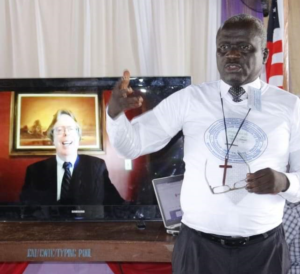Tagged: “reconciliation”
How to Become a Better Forgiver
We all know that forgiveness is neither simple nor easy. It can be a challenging process. But new tools are being developed that can help you cut through the clutter, sharpen your “forgive-ability” skills, and become a better forgiver. One of those tools was recently released by the
Greater Good Science Center (GGSC), a California organization that sponsors groundbreaking scientific discoveries.
“Eight Essentials When Forgiving“ is a simple practice technique that provides concrete guidelines while breaking down the forgiveness process into easily manageable components. The 8-step exercise is based on the “backed-by-science” work of pioneering forgiveness researcher Dr. Robert Enright, a University of Wisconsin-Madison educational psychology professor and co-founder of the International Forgiveness Institute (IFI).
Specifically, the exercise focuses on Dr. Enright’s basic forgiveness principles in order to help you:
- narrow and understand whom to forgive;
- name and describe your pain;
- understand the difference between forgiving and excusing or reconciling;
- think about the person who has caused you pain in a novel way so you may begin to feel some compassion for them and reduce the ill will you hold toward that person.
The GGSC forgiving exercise also attunes users to residual pain from their experience and encourages them to find meaning and some positivity in it. Step-by-step instructions are included along with scientific evidence that forgiveness works. GGSC also cautions that in certain cases it may help to consult a trained clinician, especially if you are working through a significant traumatic event.
The Greater Good Science Center is part of the University of California, Berkeley. It not only studies the psychology, sociology, and neuroscience of well-being but also “teaches skills that foster a happier life and a more compassionate society–the science of a meaningful life.”
 Other practice exercises and forgiveness-related resources available on the GGSC website include:
Other practice exercises and forgiveness-related resources available on the GGSC website include:
- Introducing Kids to Forgiveness
- Nine Ways to Help Siblings Get Along Better
- 8 Keys to Forgiveness
- A Different Way to Respond When Kids Do Something Wrong
- Forgiveness Quiz: How Forgiving Are You?
In an intimate relationship, how can one rebuild trust after the other shattered that trust?
Once you have walked the path of forgiving, I recommend an attempt at reconciliation. One can slowly rebuild trust with what I call the 3 R’s of remorse, repentance, and recompense. Remorse is an inner sorrow. Is the other genuinely sorry for what happened? Repentance is words that express remorse. Has the person genuinely apologized, truly meaning it (and you usually can tell a phony repentance from a sincere one by seeing the other’s emotions). Recompense is trying to make up for what happened, within reason. Has the other tried to change so that the injustices now are minimized or even eliminated? It can take time to see that recompense is occurring on a consistent level, but as you see this more stable change, trust can begin to emerge.
Sorry for being so blunt, but it seems to me that forgiving is an act of slavery to the ones who behave badly. It gives the unintended message that I am too soft in my response to the one who hurt me. What do you think?
I think you are equating forgiving and automatically reconciling without asking anything of the one who hurt you. As you forgive, you can and should ask for fairness.
Liberia Seeks Peace Through Forgiveness

Forgiveness Education class at Mother Tegeste Stewart Apostolic Pentecostal School in Brewerville, Monrovia, Liberia.
Bishop Brown has been working with IFI co-founder Dr. Robert Enright to implement elementary and secondary school Forgiveness Education initiatives (including for all 500 students at the Mother Tegeste Stewart Apostolic Pentecostal School in Brewerville), after-school forgiveness education clubs, and Sunday School forgiveness lessons. Since 2017, Group Forgiveness interventions also have been incorporated into the LFEP thanks to Bishop Brown’s significant role in governmental affairs.
“I suggested that approach, in all humility, because dialogue will not be fruitful if those engaging in the dialogue are still very angry about past grievances,” Dr. Enright explained. “Forgiveness is a scientifically-supported way of eliminating that anger.”
- Can Group Forgiveness In Liberia Lead to Peace?
- A New Strategy for Peace in the World. . . The Enright Forgiveness Inventory
- First Ebola, Now Coronavirus: Liberia Suffers Again
I seem to be lost on the forgiveness path. I try and try, but I do not think I have made much progress in forgiving my partner and this has been going on for about a year. Should I just get off the forgiveness path regarding my forgiving him?
Before you give up, I have some questions for you:
1) Have you committed to doing no harm to your partner, even in the context of your having the opportunity to somehow hurt him? If you answered, “Yes, I have committed to doing no harm,” then you are not lost on the forgiveness journey. This is a big step in the process;
2) Have you tried to see his weaknesses, his confusions, his wounds that may have wounded you? If not, perhaps you need to do some of this cognitive work, to see him in a wider perspective than only his injuries toward you;
3) Do you think that your will is strong enough to do the work outlined in #1 and 2 above? If so, that work could lead to your forgiving if you give this time.
So, what do you think? Have you found your way back onto the path of forgiveness?




